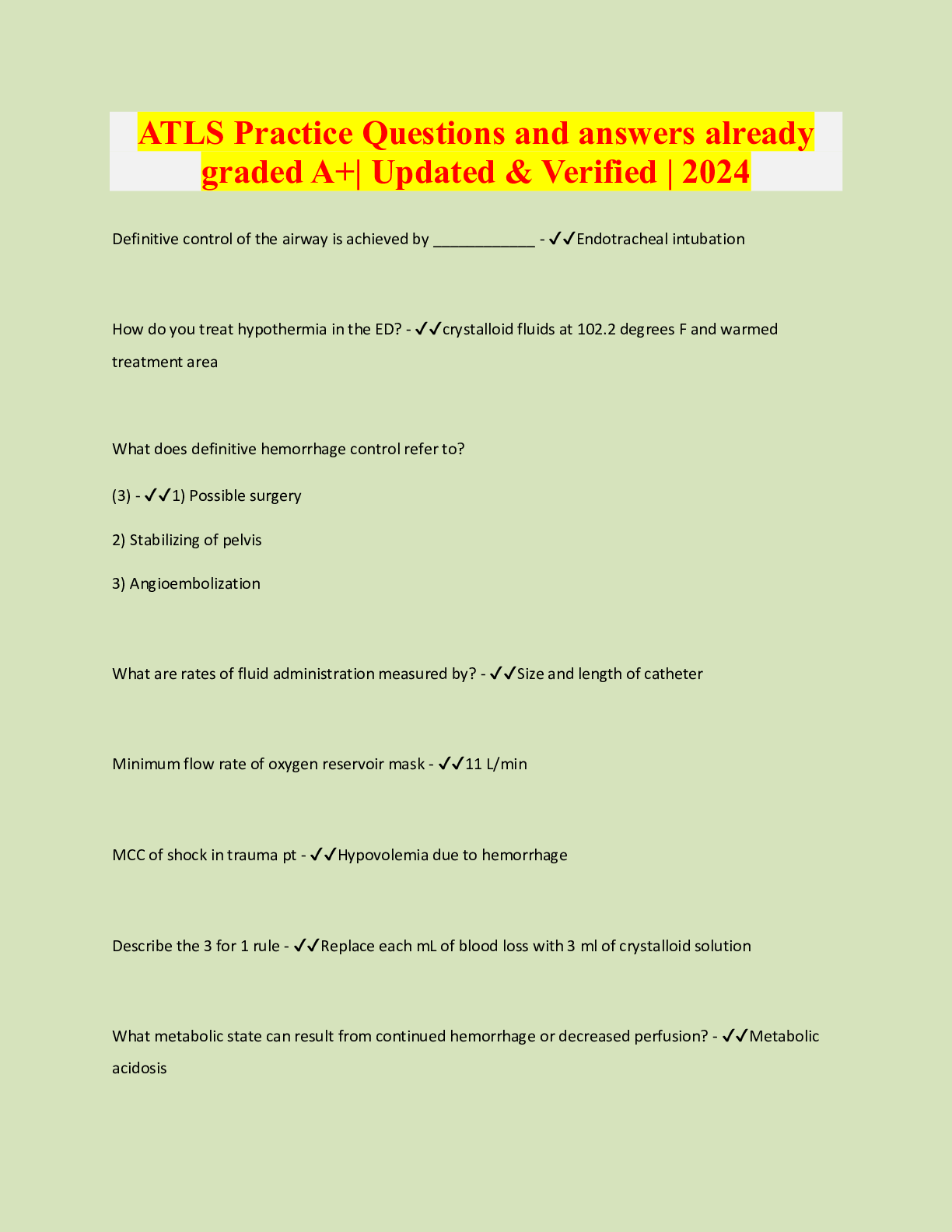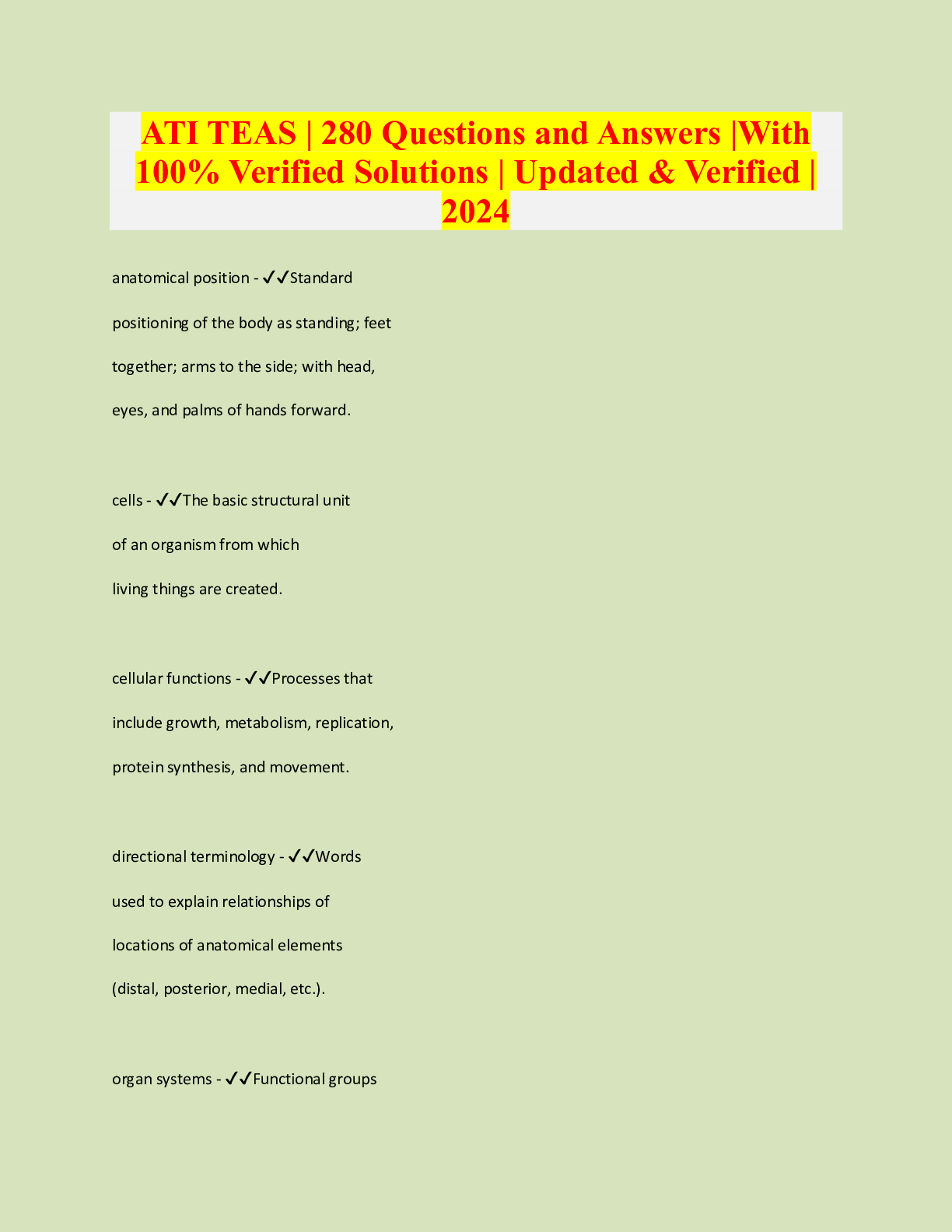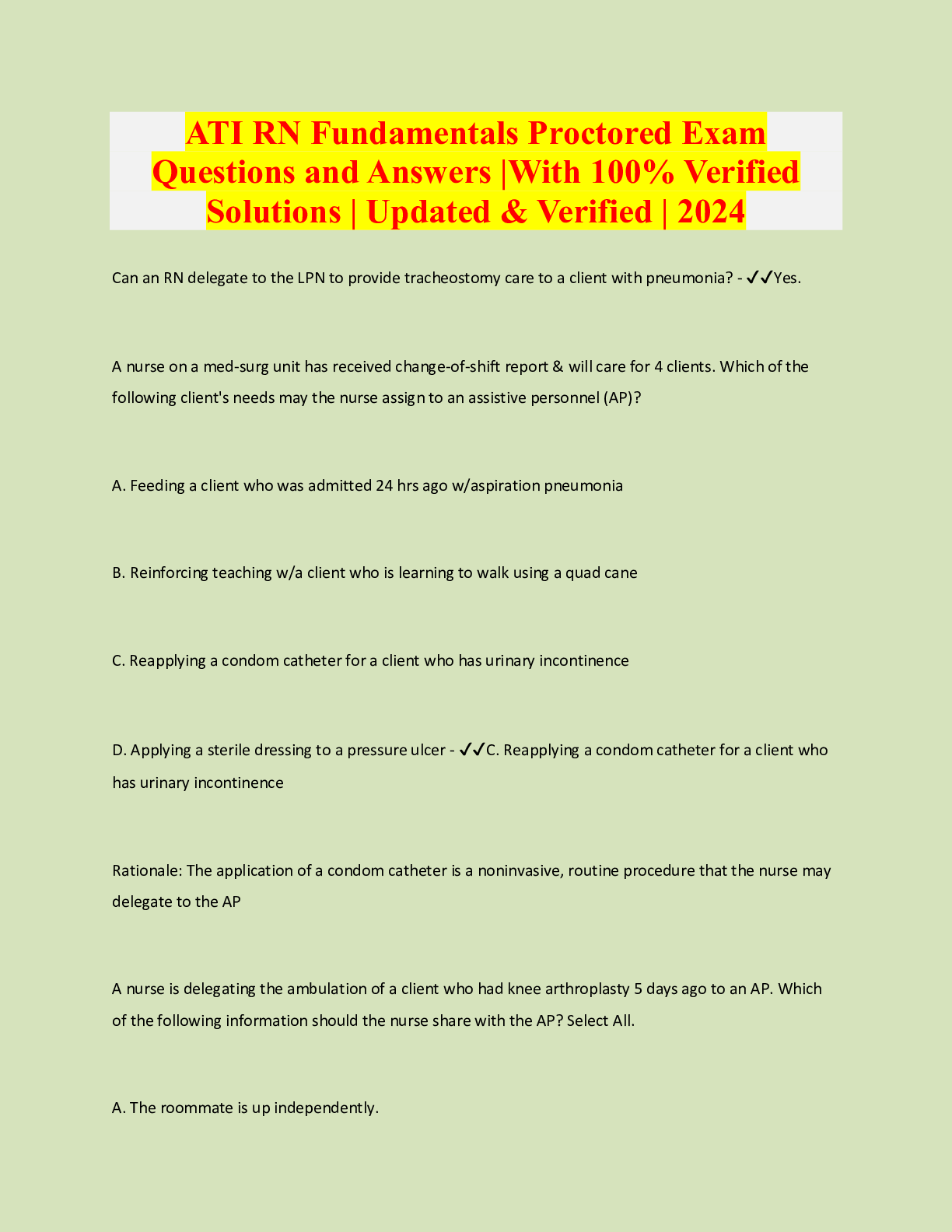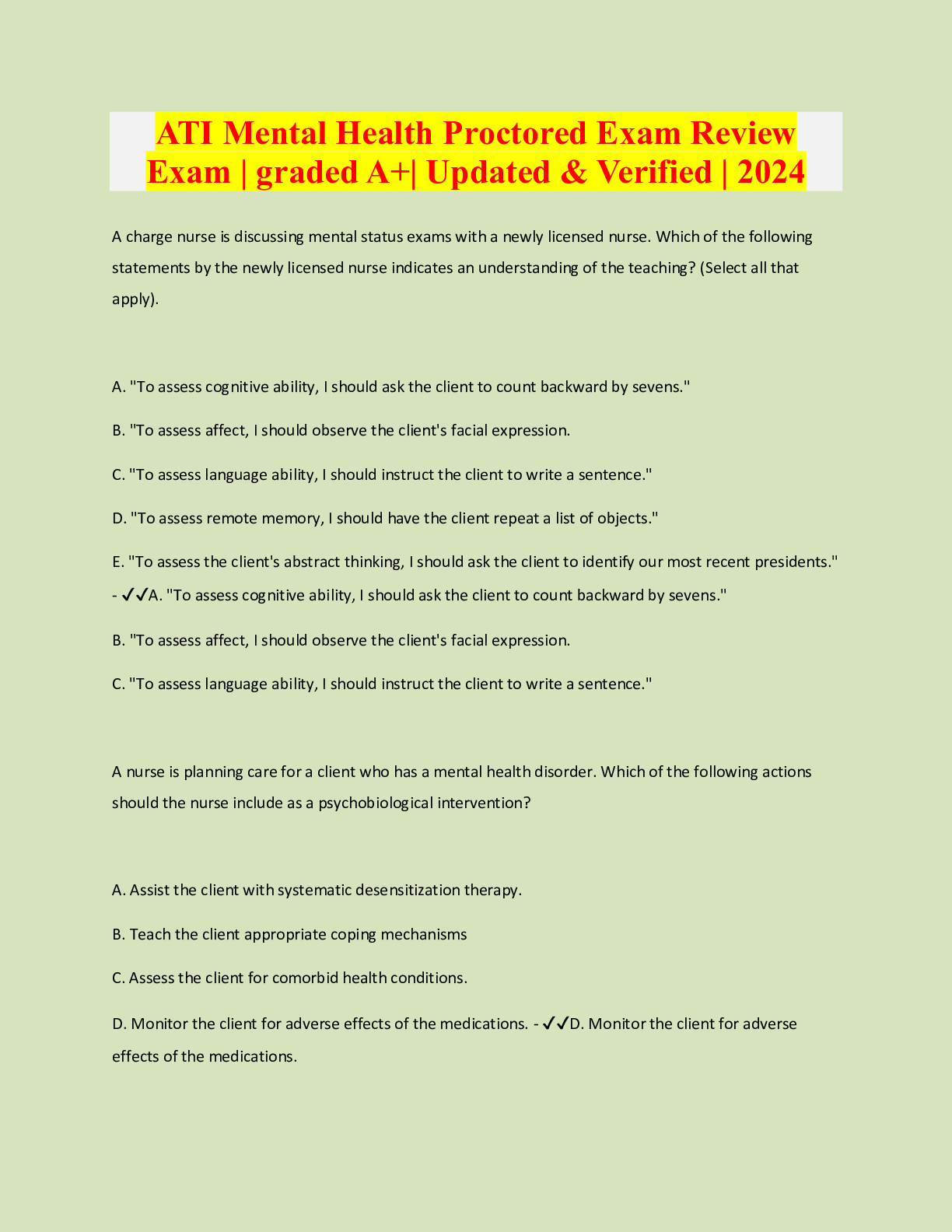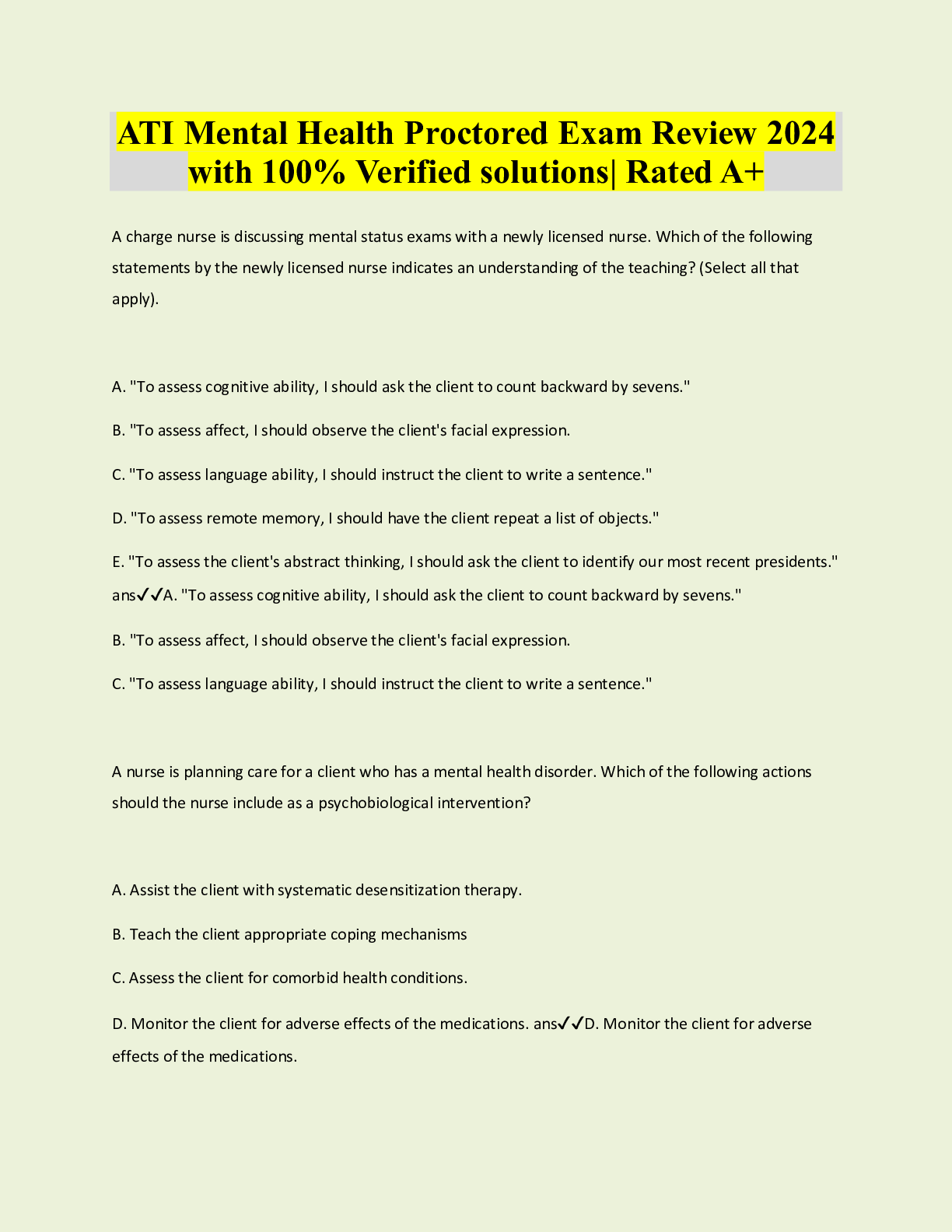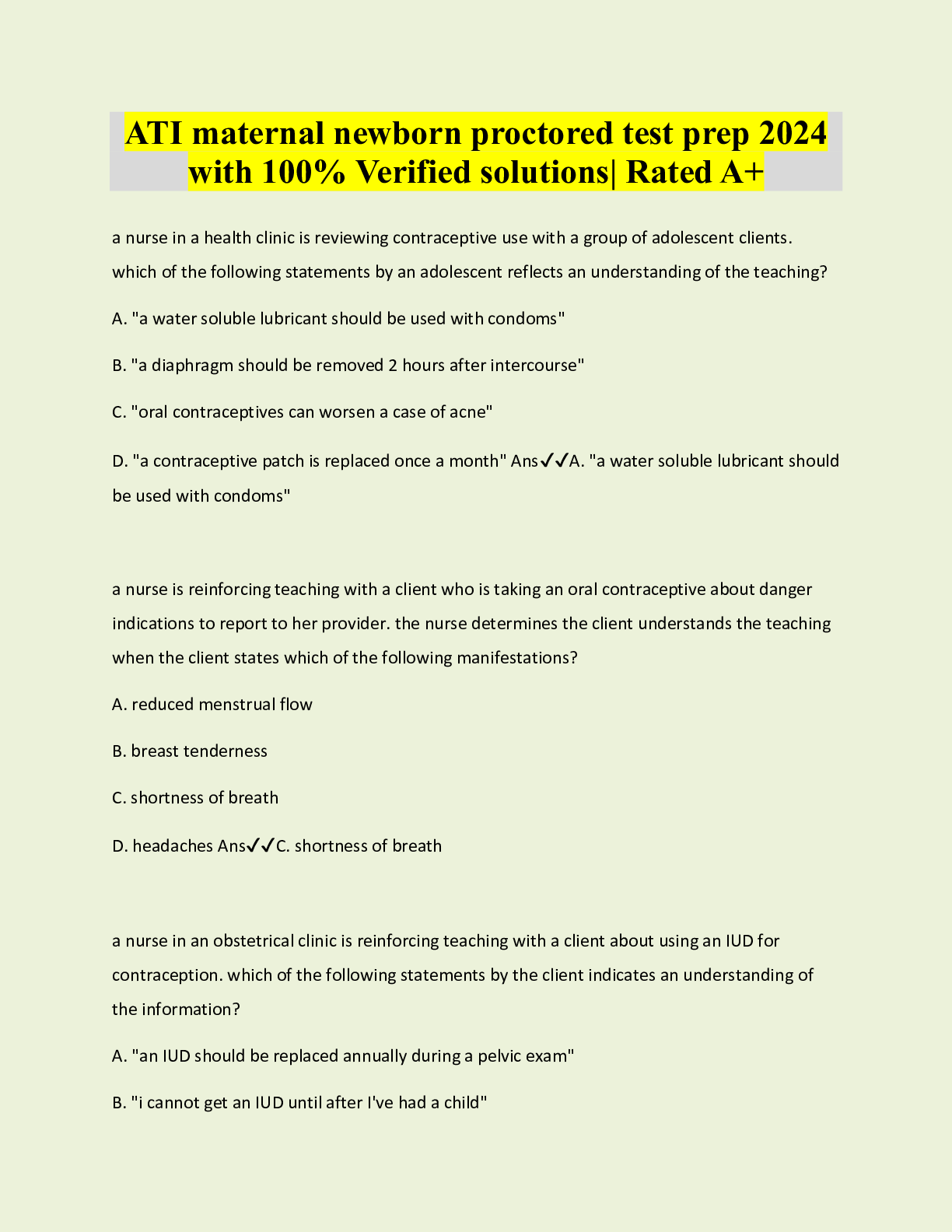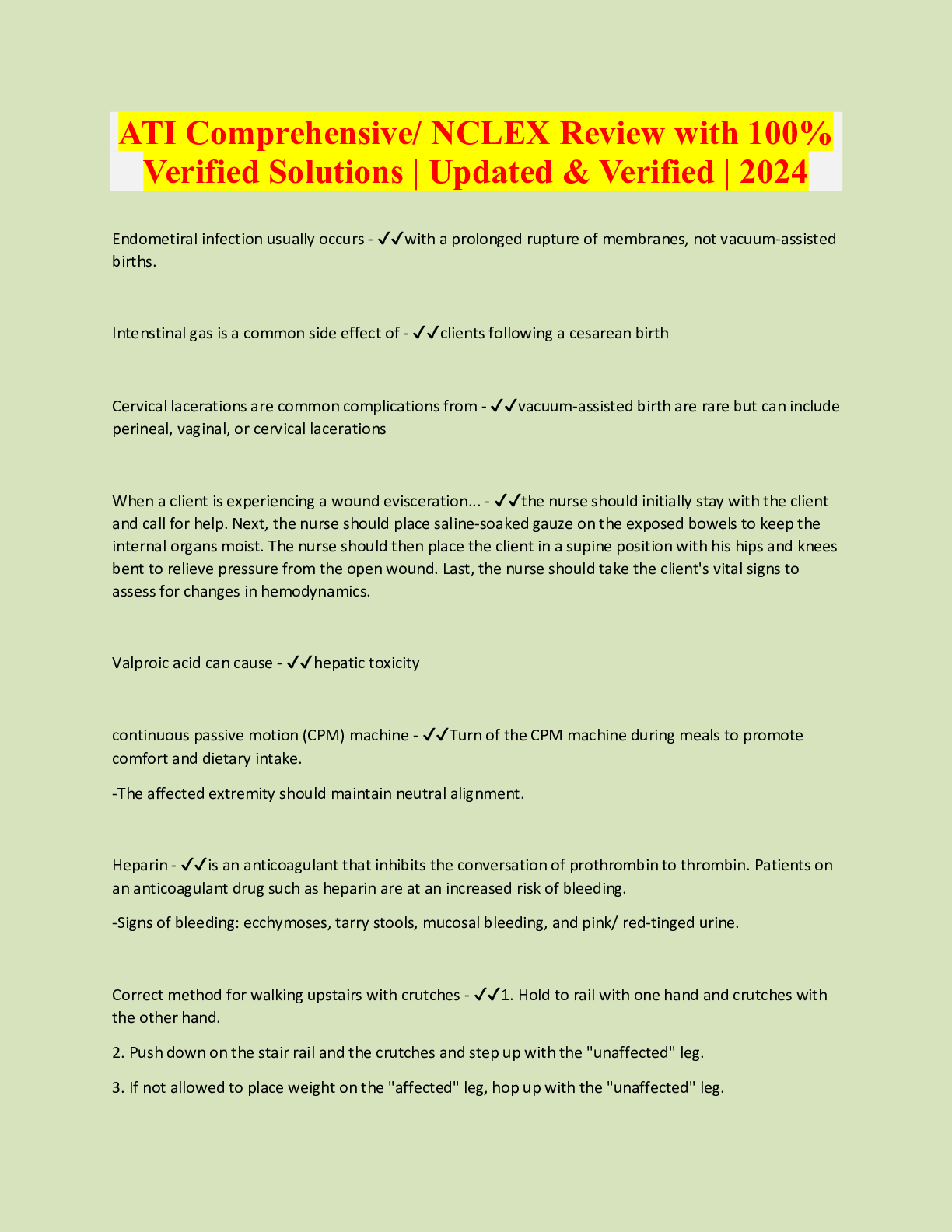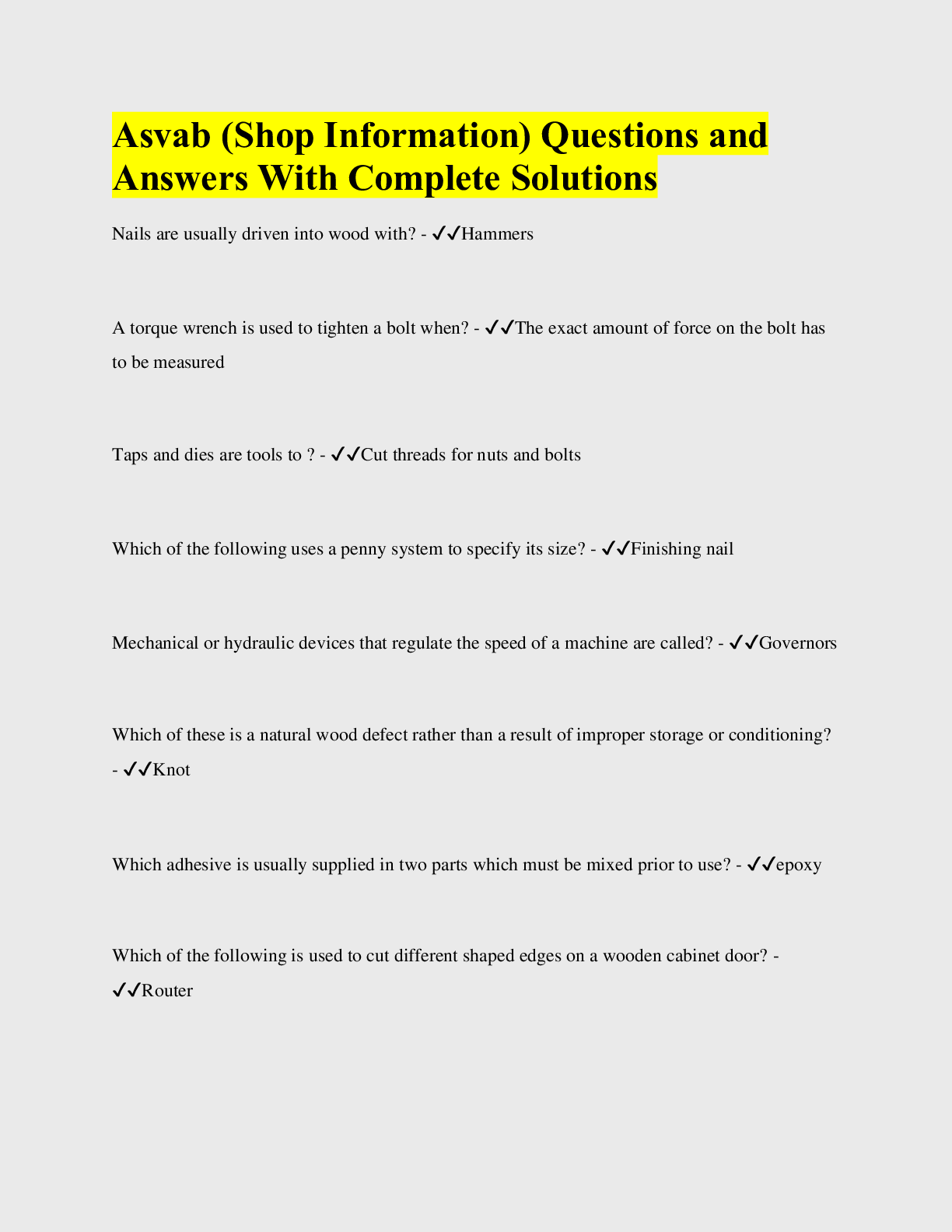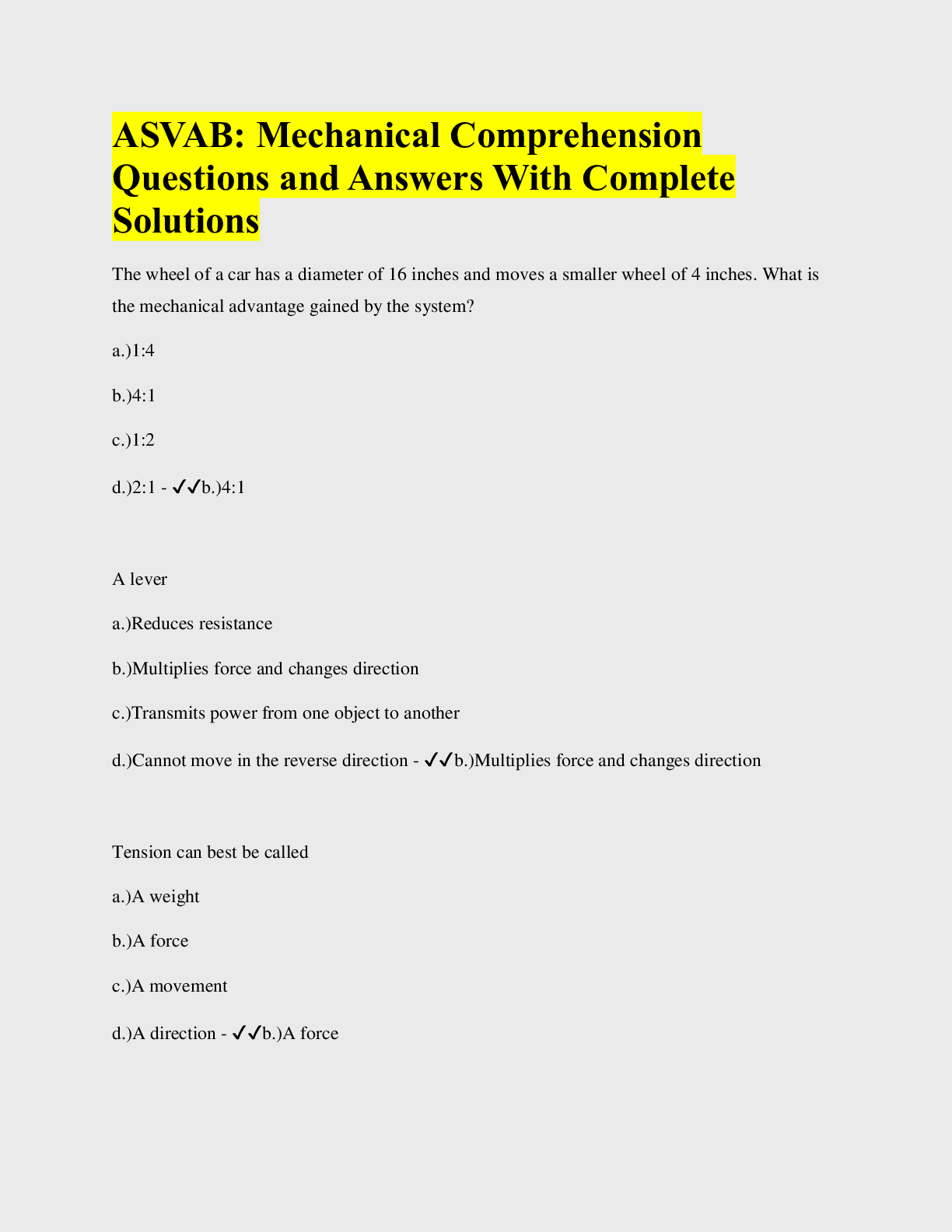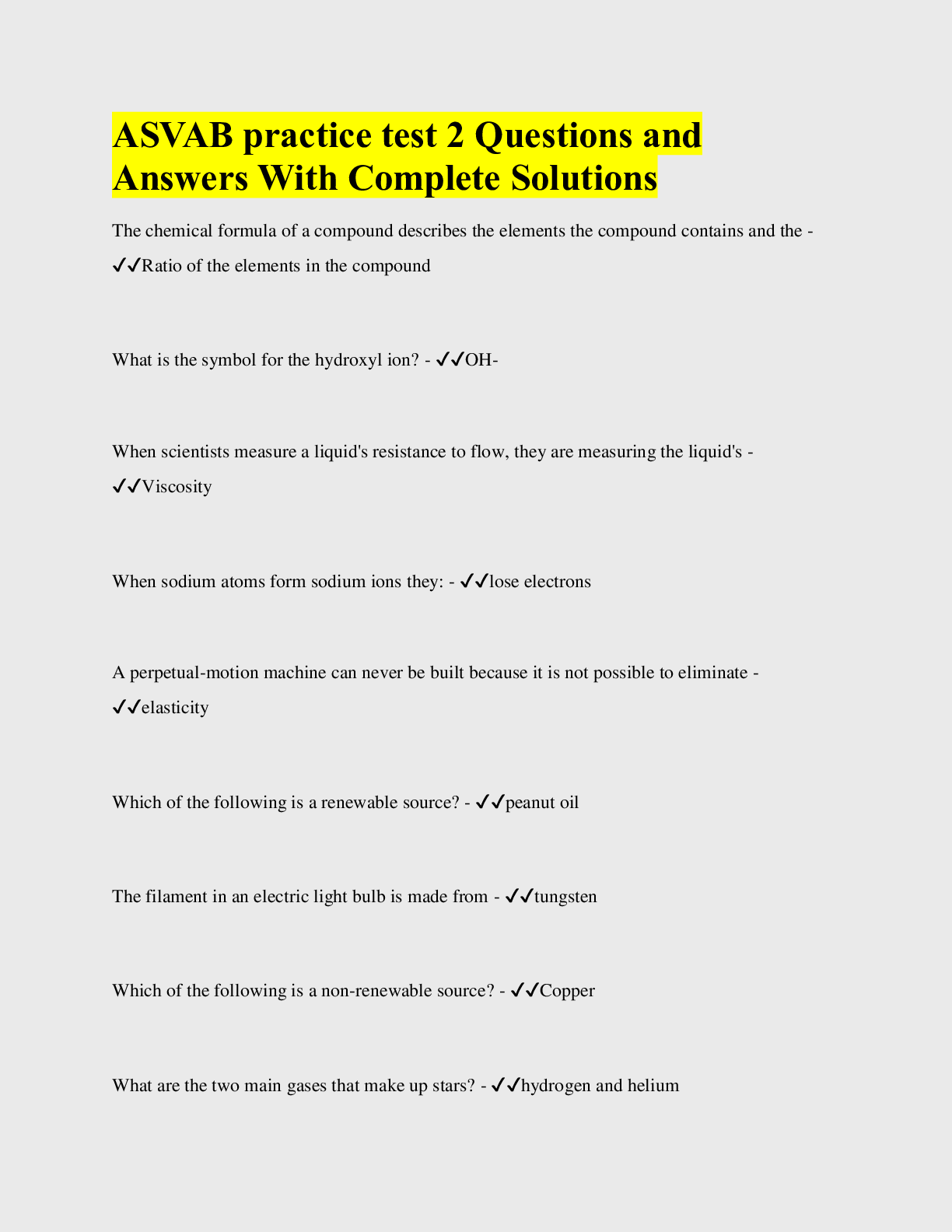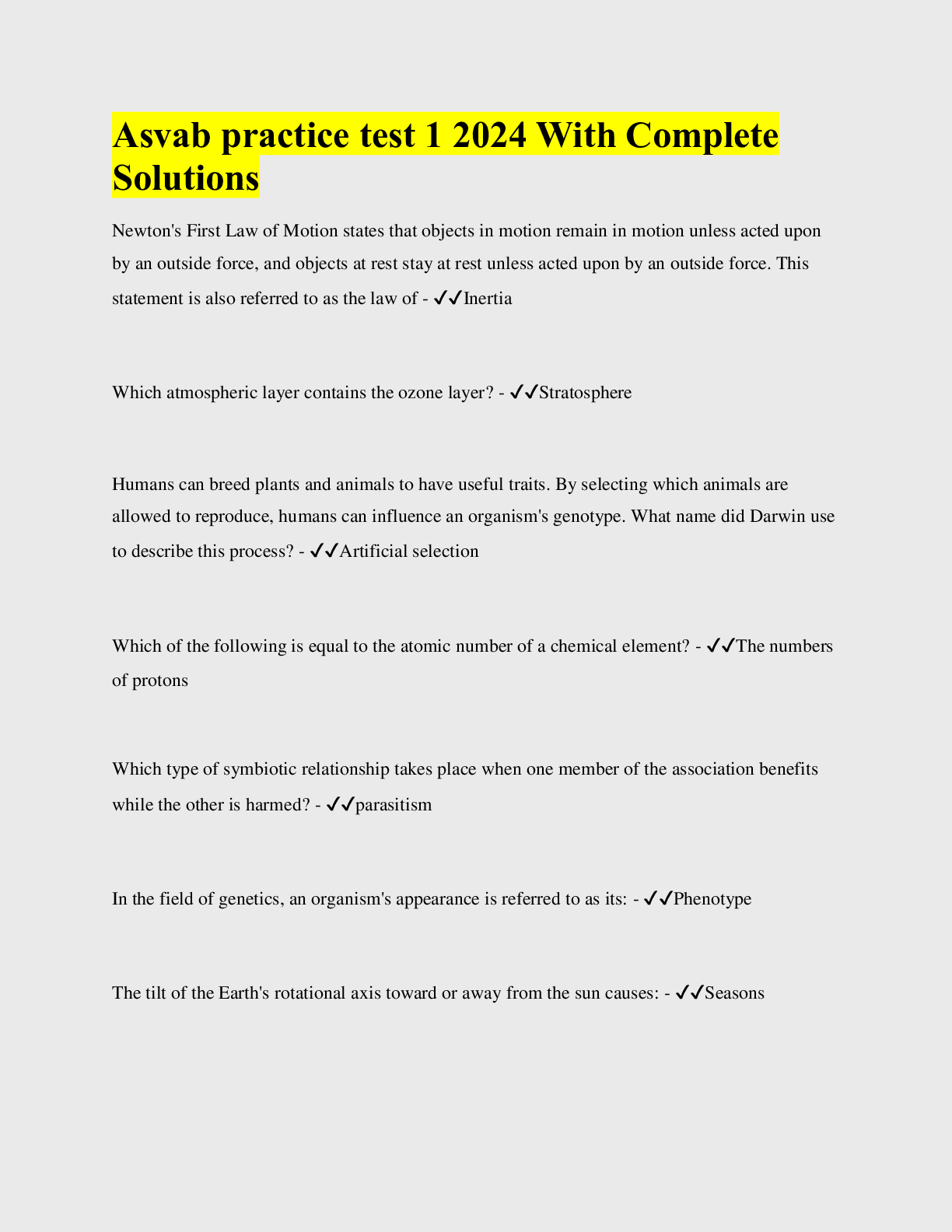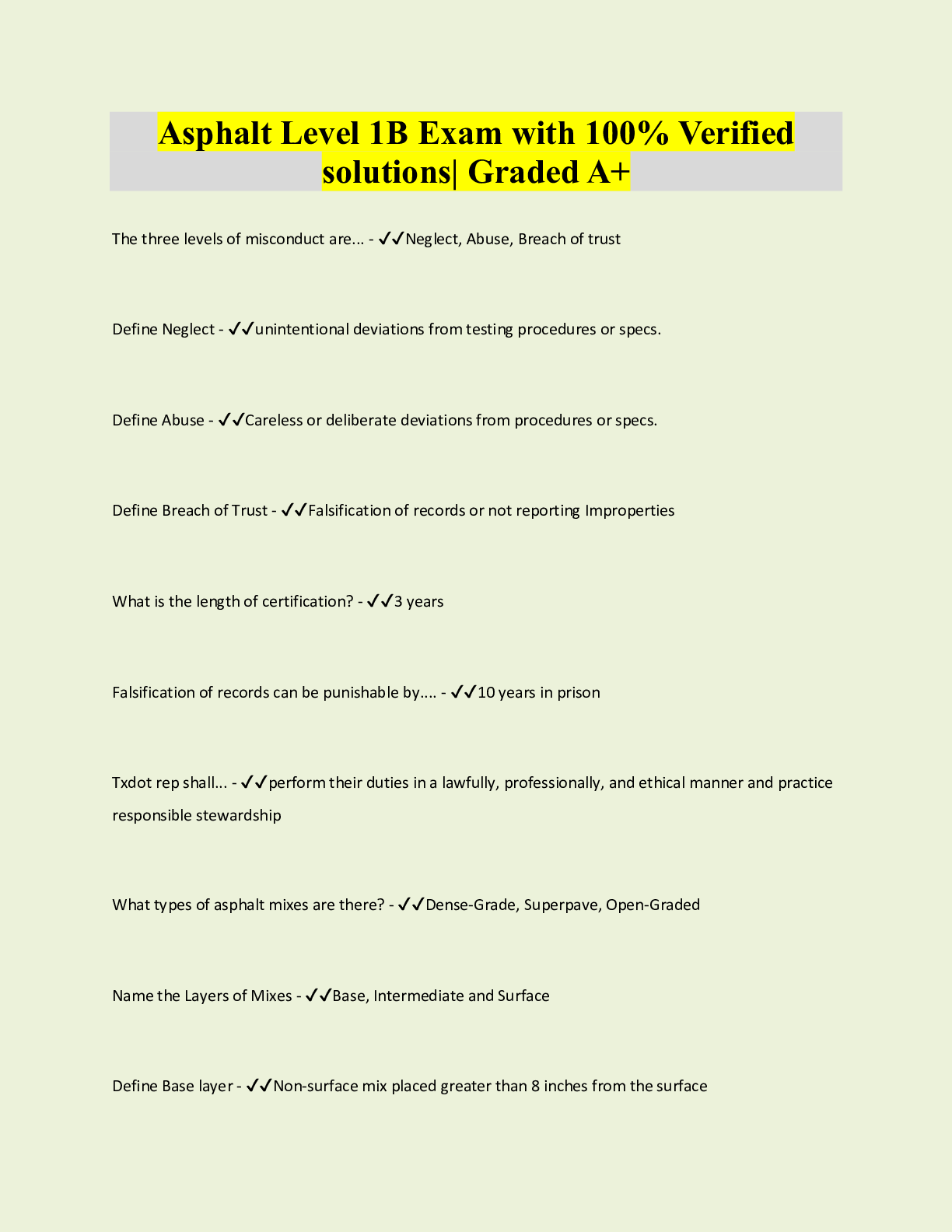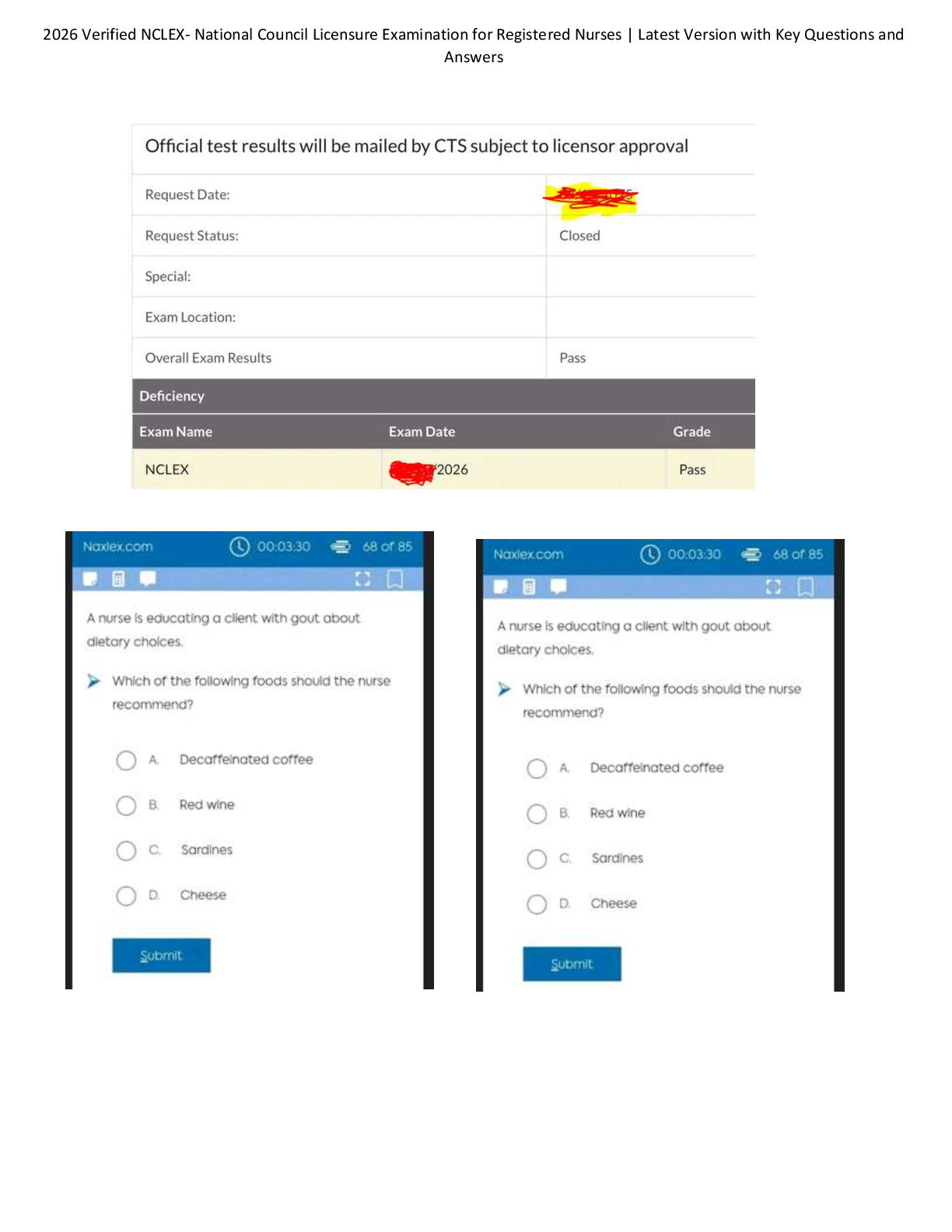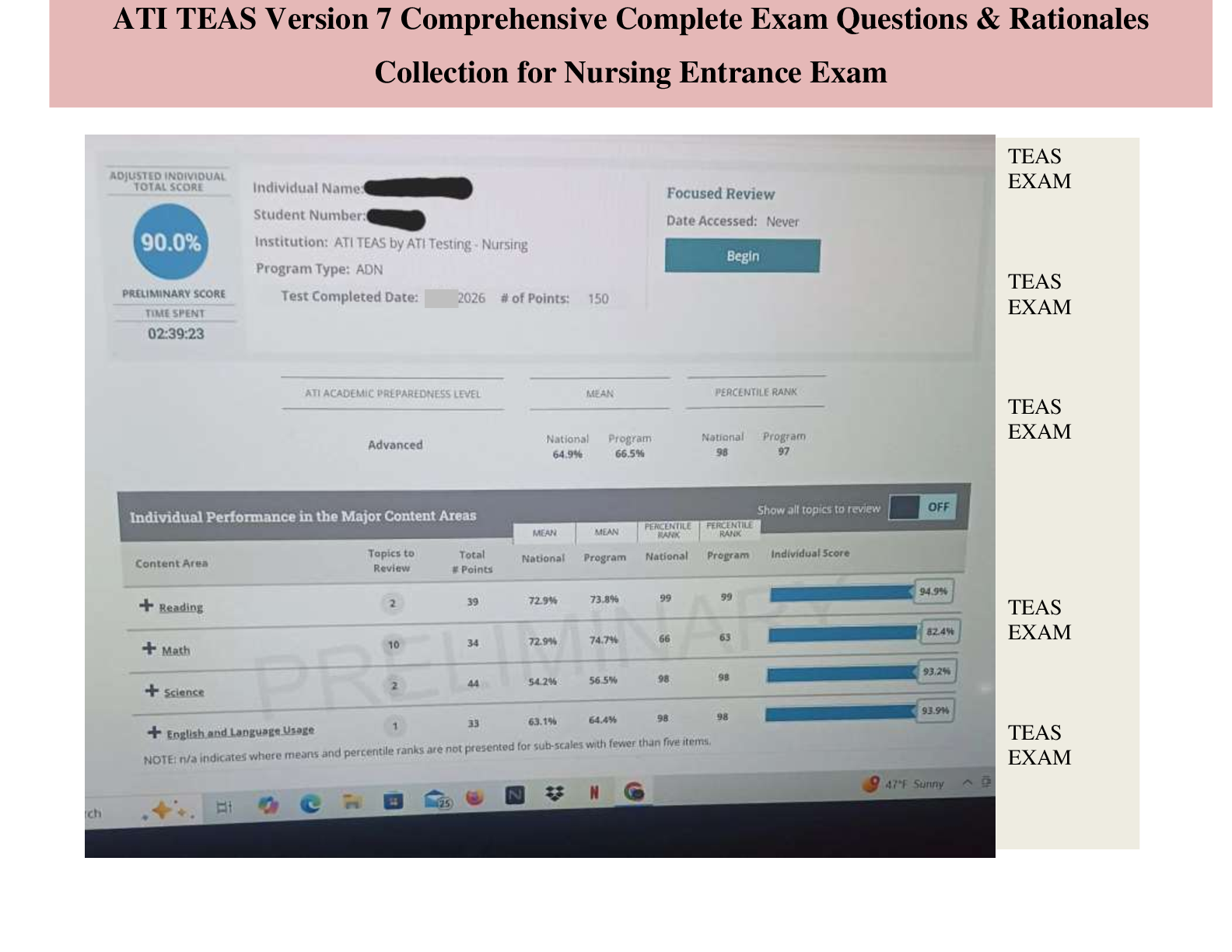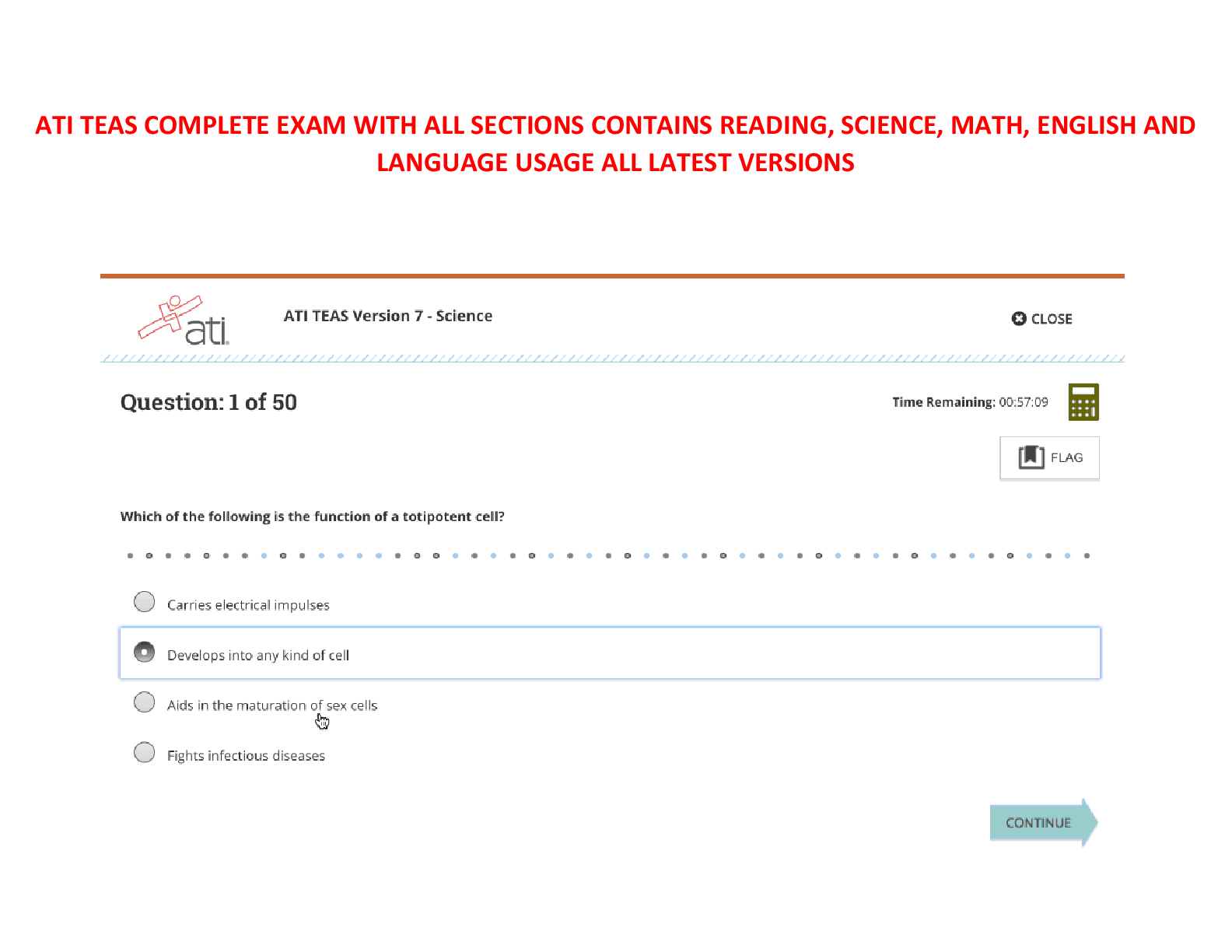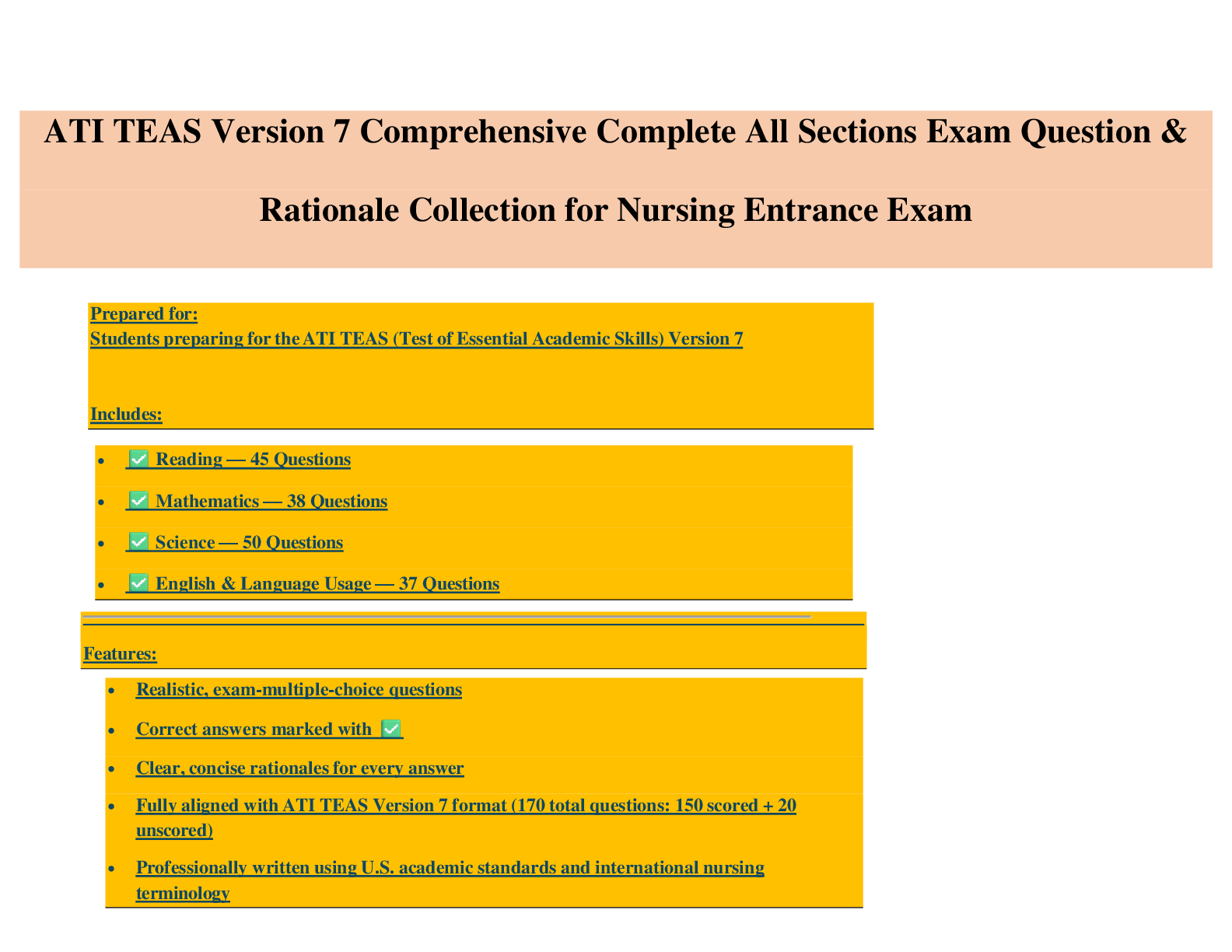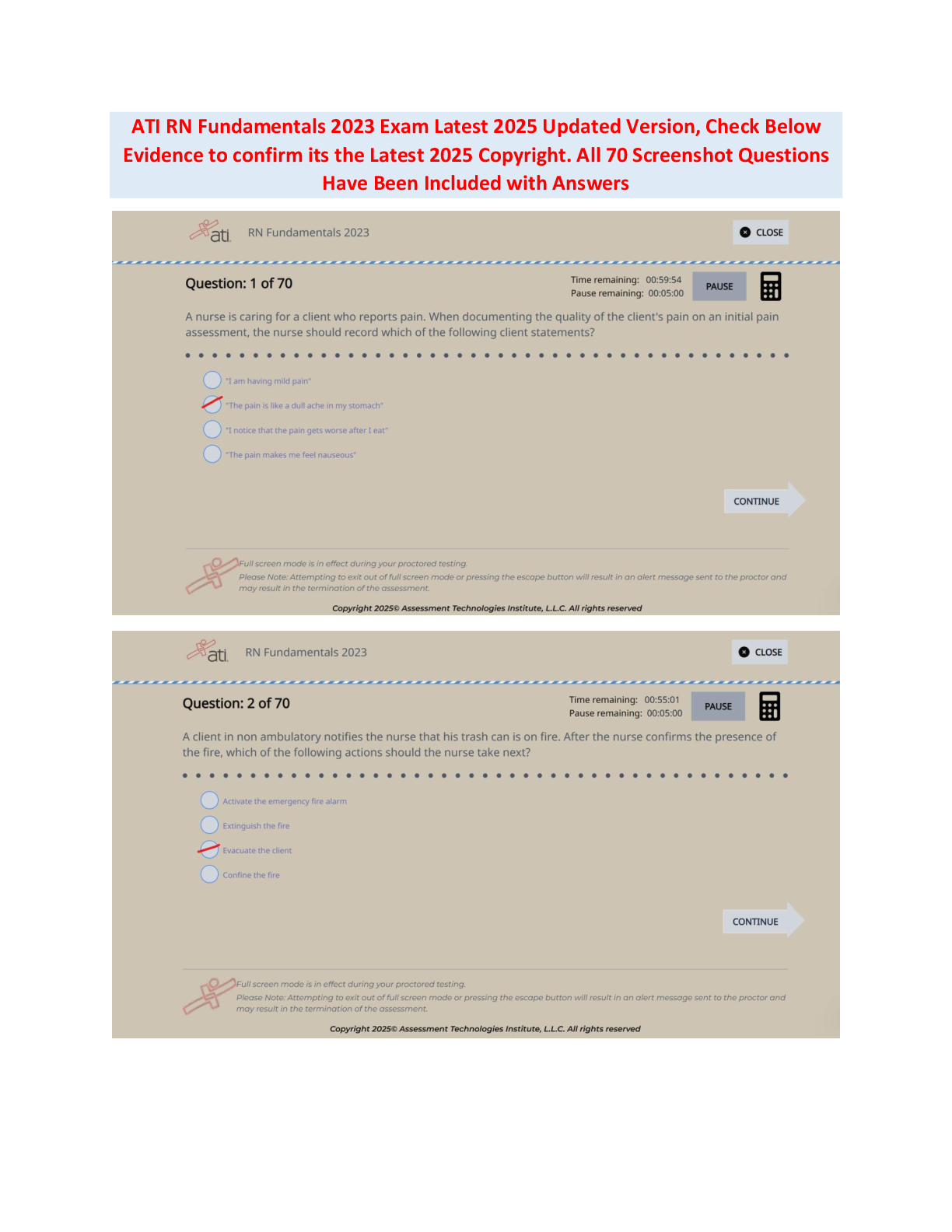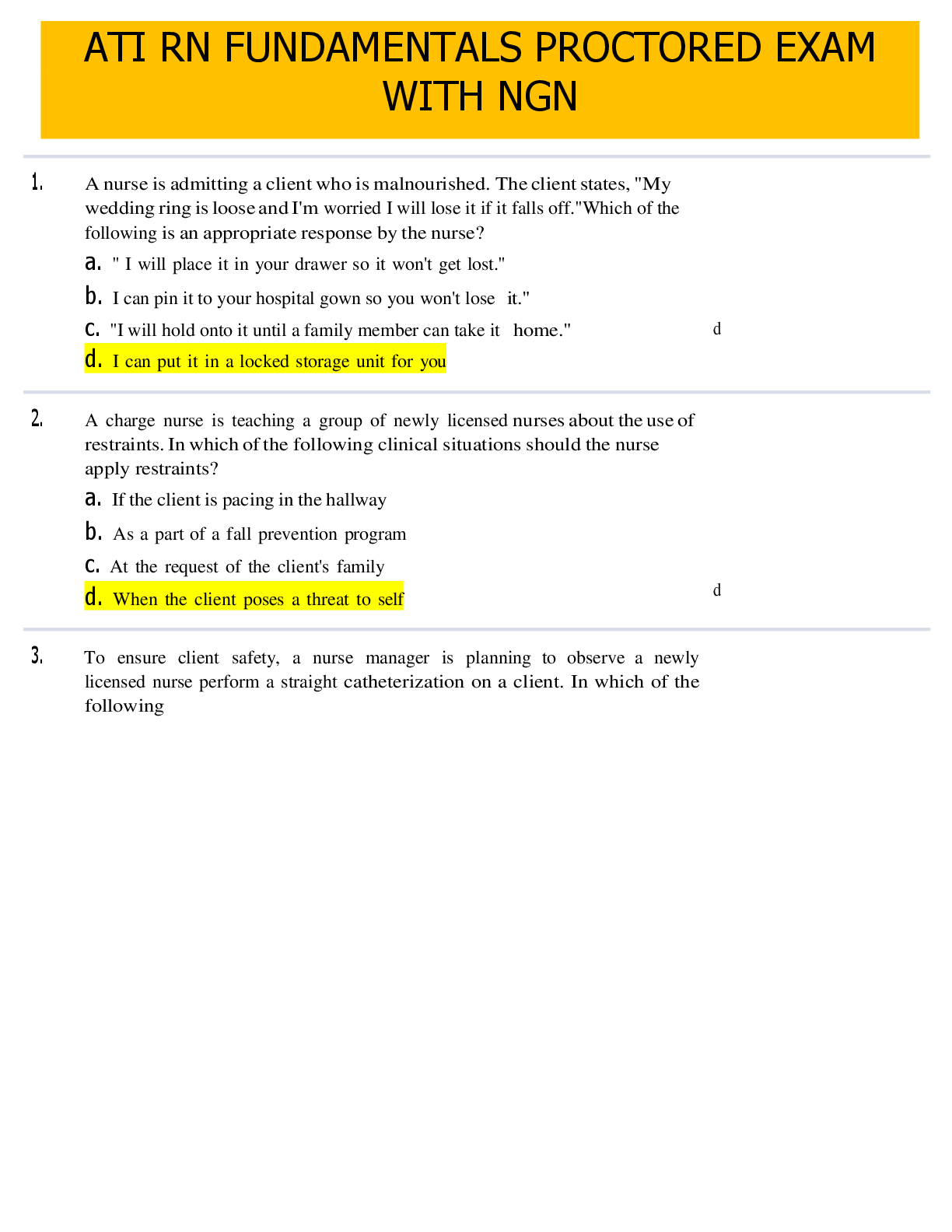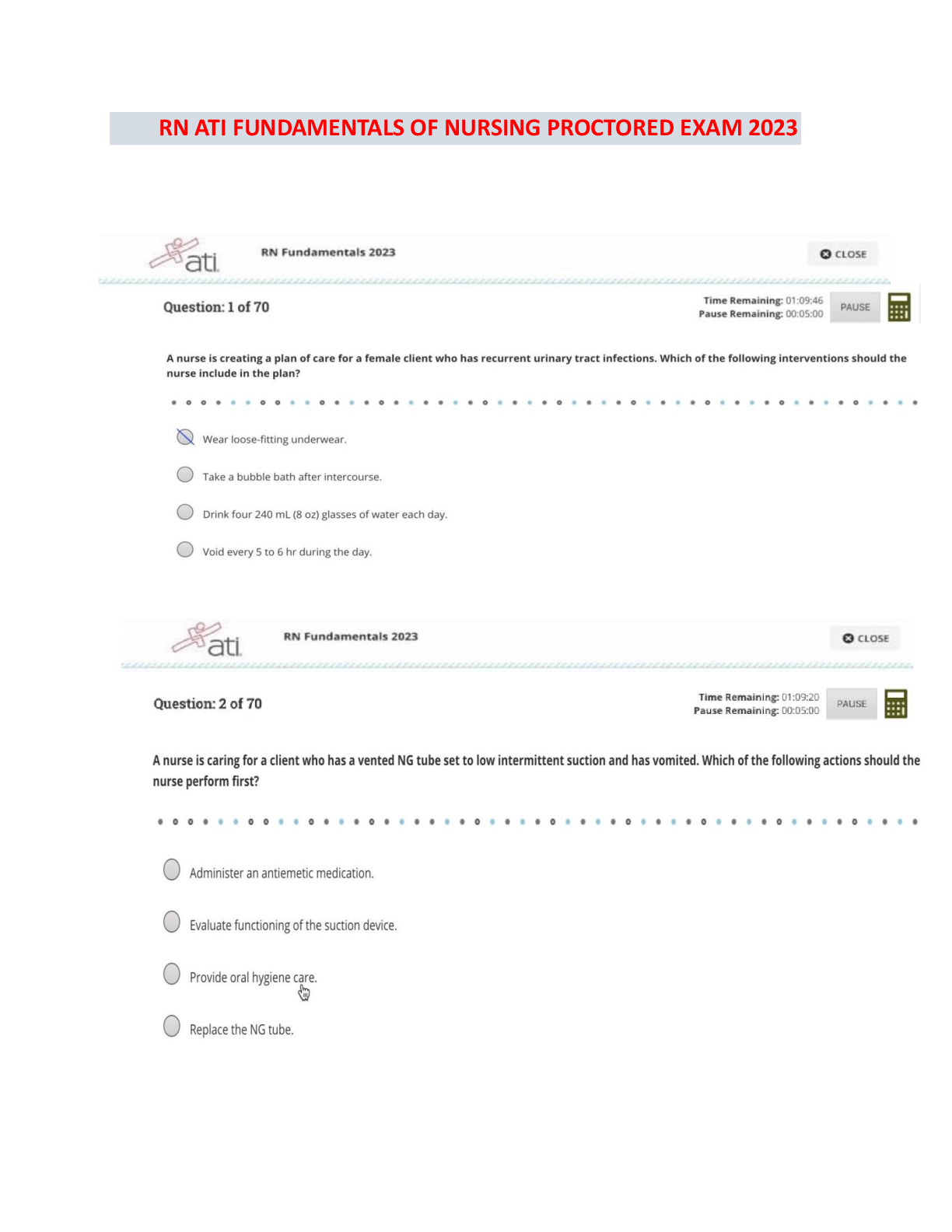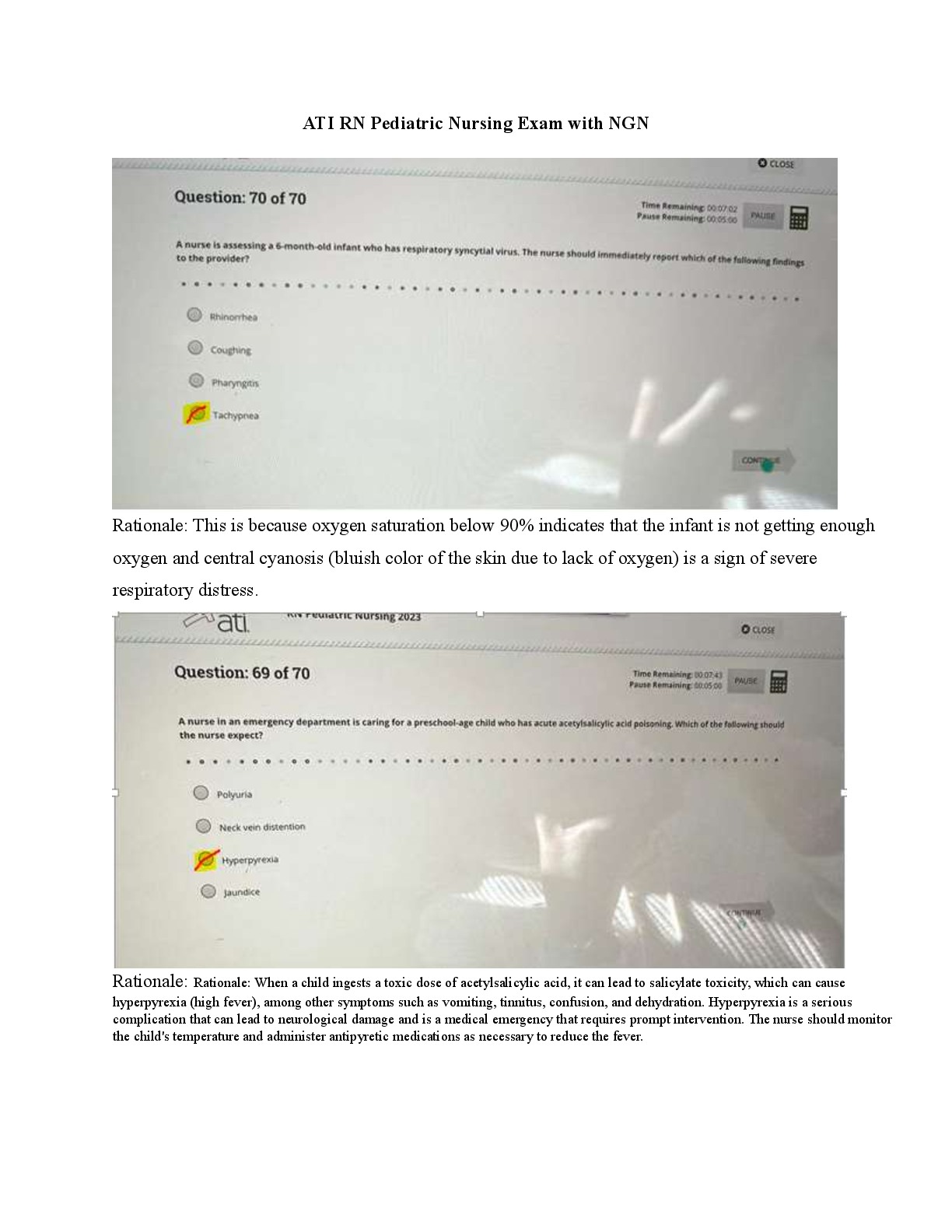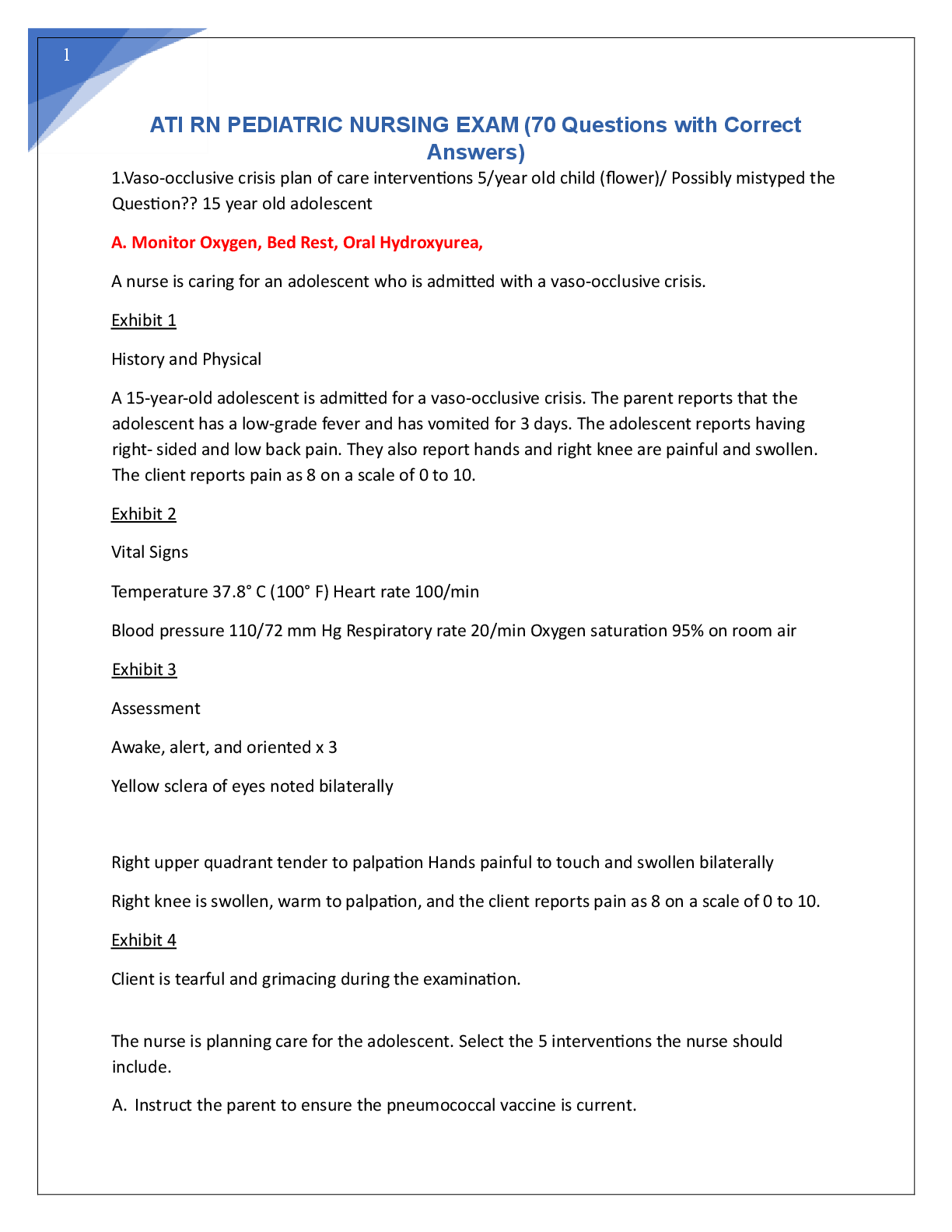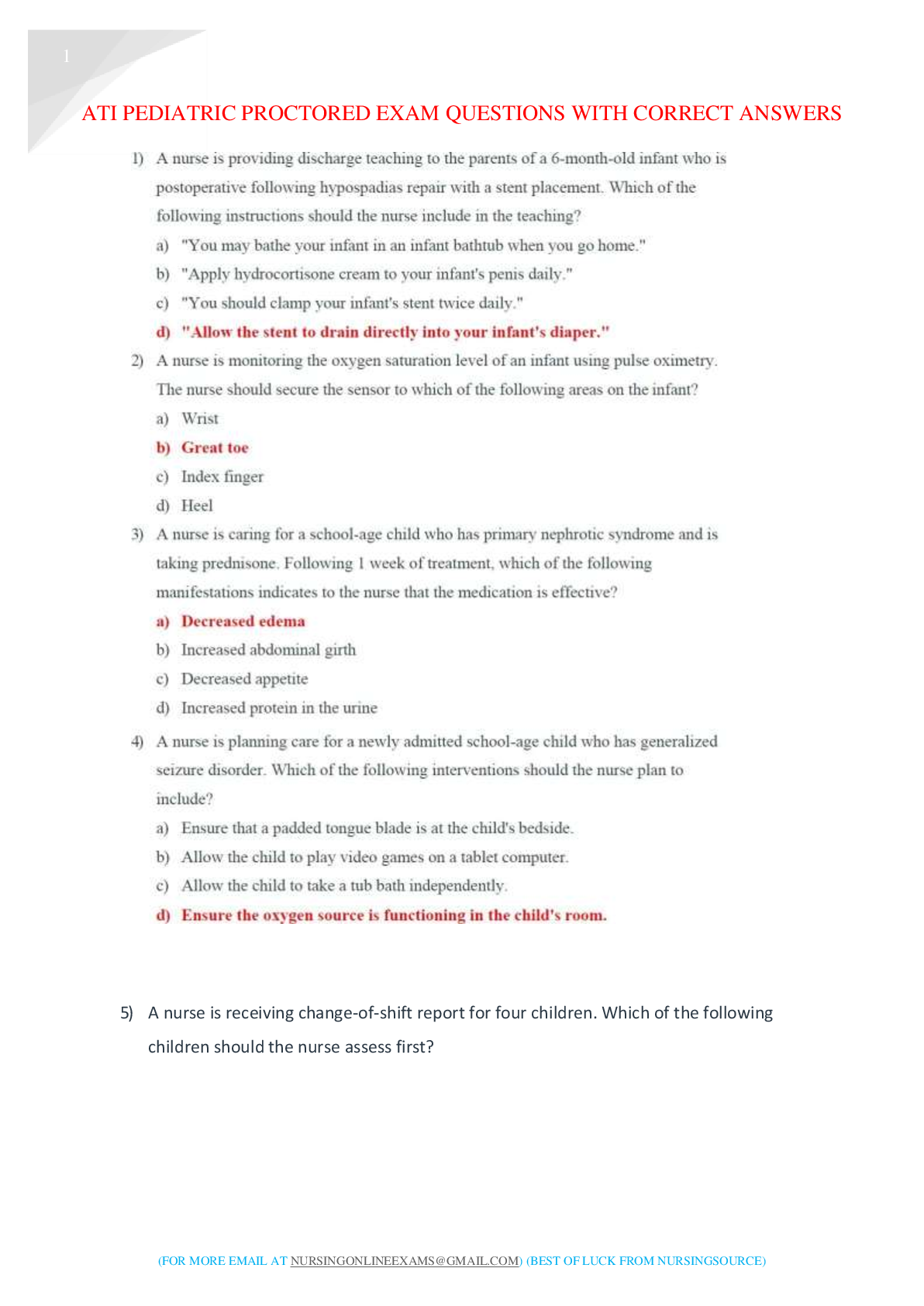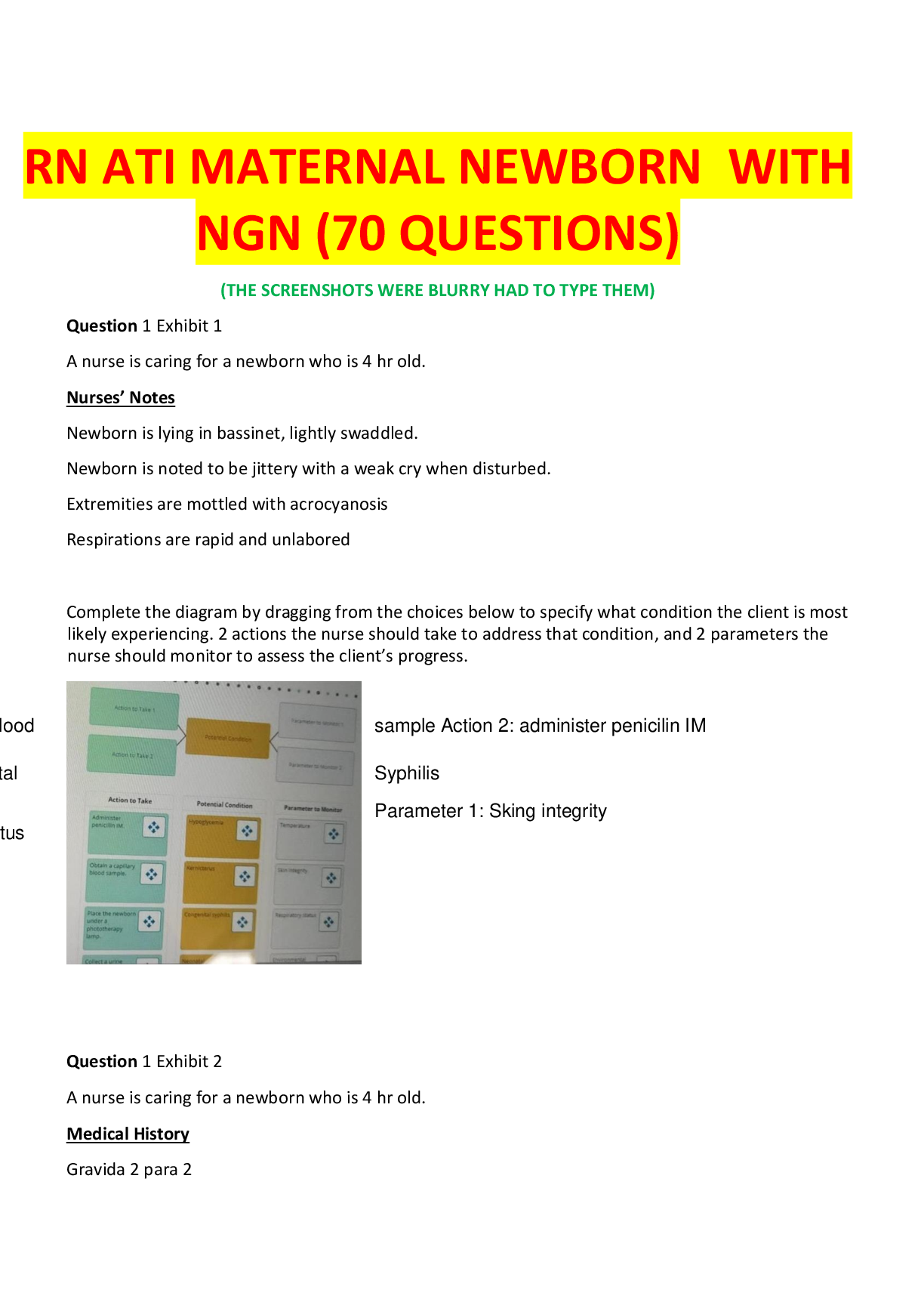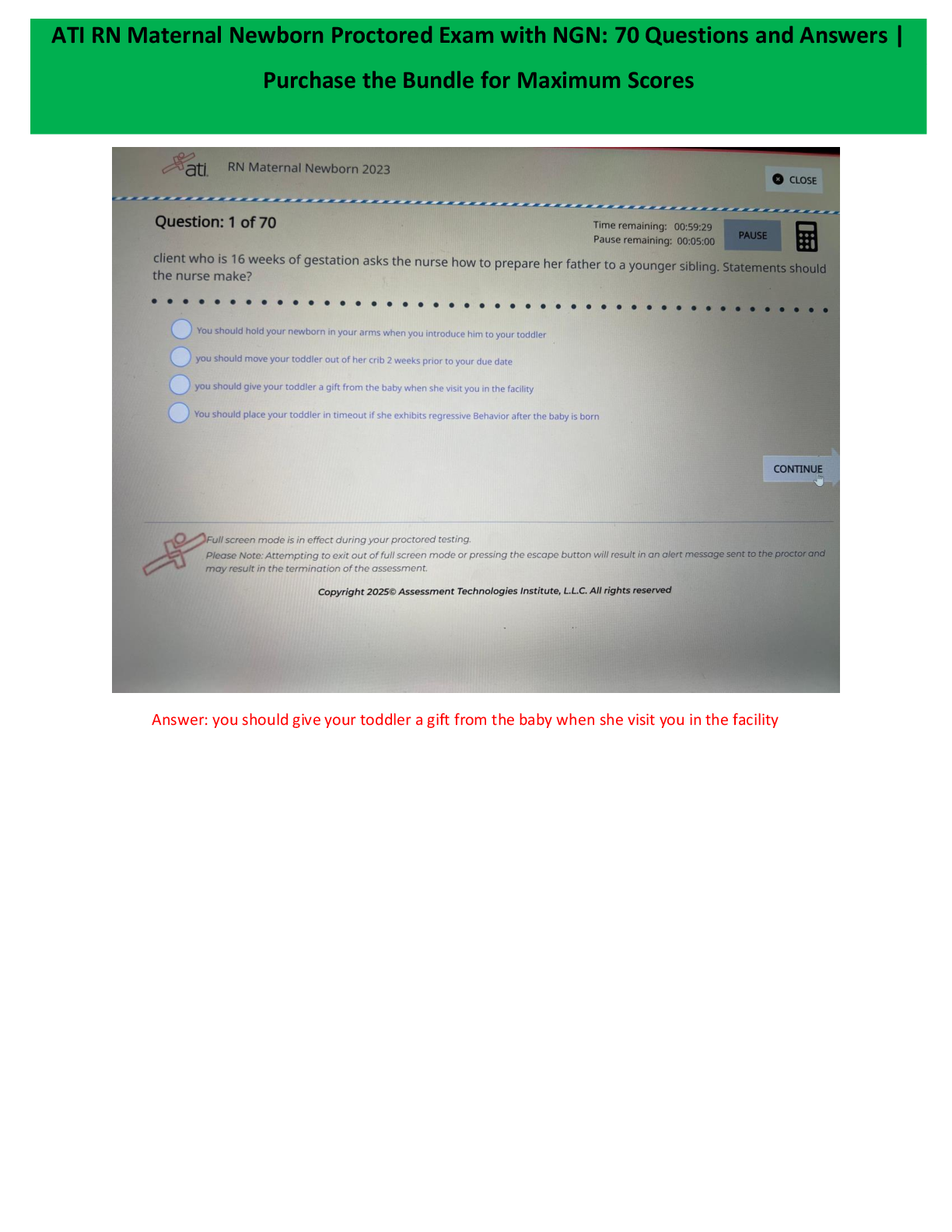globalization ✔✔process by which people and goods (products, technology, information, ideas,
job opportunities) move across boarders
regulate global economic environment ✔✔International Monetary Fund, World Bank, World
...
globalization ✔✔process by which people and goods (products, technology, information, ideas,
job opportunities) move across boarders
regulate global economic environment ✔✔International Monetary Fund, World Bank, World
Trade Organization
globalization drivers ✔✔economics, transportation, international cooperation
fundamental aspects of globalization ✔✔trade and transactions, capital and investment
movements, migration and movement of people, the dissemination of knowledge
areas of globalization ✔✔economy, politics, culture
cultural globalization ✔✔transmission of ideas, meanings, values around the world - extends and
intensifies social relations (formation of shared norms and knowledge with which people
associate their individual and collective cultural identity)World Trade organization ✔✔provide framework for negotiation and formalizing trade
agreements and a spite resolution process
International Bank for Reconstruction and Development (The World Bank) ✔✔aid in economics
development and cooperation
financial instrument ✔✔a monetary contract between parties
stages of going global ✔✔market entry, product specialization, value chain disaggregation, value
chain reengineering, creation of new markets
market entry ✔✔enter new countries using models similar to ones deployed in home markets
product specialization ✔✔companies transfer production process of a particular product to a
single low cost location and export the goods to different markets
value chain disaggregation ✔✔companies separate the production process and focus on
completing each activity in the most advantageous locationvalue chain reengineering ✔✔companies seek to increase cost savings by rejigging their
processes to suit local market conditions (lower cost labor for capital)
creation of new markets ✔✔focus = market expansion//company able to lower sticker prices and
to expand demand
industry globalization drivers ✔✔underlie conditions in each industry and create potential for
industry to become more global
market, cost, competition, government
opportunities for scale ✔✔cost advantages due to an increase in the amount of output and
decrease in cost per unit
market ✔✔opportunity for scale, convergence of needs
cost ✔✔economies of scale and scope, exploiting cost of factors of productioncompetition ✔✔new markets, increased levels of trade
government ✔✔favorable policies, support for industry
economies of scale ✔✔savings in costs increased by levels of production
scope ✔✔efficient in variety
Benefits globalization ✔✔more products available to reach more people, growth in GDP, more
power to individuals
MNC ✔✔multinational corporation
MNC benefits globalization ✔✔unsaturated markets, low labor costs, less expensive natural
resources (up revenue or lower cost structure)
MNC challenges globalization ✔✔ethical business practices, organizational structure, public
relations, leadership, laws and regulationsCAGE analysis ✔✔cultural, administrative/political, geographic, economic - barriers to crossboarder economic activity
Gini coefficient ✔✔measures the inequality among values of a frequency distribution such as
levels of income
Happy Planet Index ✔✔measures how well nations are doing at achieving long, happy,
sustainable lives
Gross Domestic Product (GDP) ✔✔the total value of goods and services provided in a country in
a 1 year period
Gross National Product (GNP) ✔✔the total value of goods and services provided by a country
both inside and outside of its boarders in a 1 year period
Economic Growth ✔✔a percentage change in real GDP or real GNPIndustrialized Nations ✔✔economically advanced countries - healthy climate for private
business (EX: Japan)
Least Developed Countries (LDCs) ✔✔countries with extensive poverty - lack strong
government and financial/economic systems ( EX: Uganda)
Developing nations ✔✔countries that exhibit rising levels of education, technology, and per
capita incomes - making transition from economies based on agriculture to industrialized
economies (Ex: Costa Rica)
Developing Economic System ✔✔what should the country produce/how will the country
produce it/who will get the final product
traditional economies ✔✔centered around a family (guided by tradition), hunter/gather or
nomadic societies, rely on bartering, no surplus, economy evolves to some form of currency
advantages traditional economy ✔✔no friction between members, all members understand
position in society, sustainabledisadvantages traditional economy ✔✔at mercy of climate, lower standard of living, vulnerable
to more efficient market
command economy ✔✔economic effort devoted to goals passed down from a ruler or ruling
class - resources/businesses owned by government
command economy features ✔✔collective/state ownership of capital, state determines inputs and
outputs, labor is allocated according to state plans, private ownership is not possible, prices are
regulated by state, goods are rationed
advantages to command economy ✔✔organizations mobilize large amounts of resources (large
projects easily undertaken), economy transformed by leaders vision
disadvantages command economy ✔✔neglect societies needs, rationing necessary, rules>
innovation, shadow economies, economy is less flexible
market economy ✔✔Economic decisions are made by individuals or the open market.characteristics of a market economy ✔✔goods/services privately owned, competition keeps
prices low, relies on efficient market, government interference is at a minimum
advantages market economy ✔✔able to buy need/want, production methods are efficient,
innovation is rewarded
disadvantages market economy ✔✔those who can't compete at a disadvantage, not all can reach
full potential, divide between privileged and underprivileged
mixed economies ✔✔protects private property, supply/demand laws, gov protect people and
market
freedoms of mixed economies ✔✔to possess means of production, to travel, buy/sell, hire/fire,
organize, communicate, protest peacefully
underground economies ✔✔economic transactions that are illegal
Legal systems ✔✔common, civil, religiousCivil law ✔✔detailed set of laws that constitute a code and focuses on how the law is applied to
the facts
common law ✔✔based on traditions and precedence - judges interpret the law and judicial
rulings set precedent
religious law (theocratic law) ✔✔based on religious guidelines - moral legal system
[Show More]



